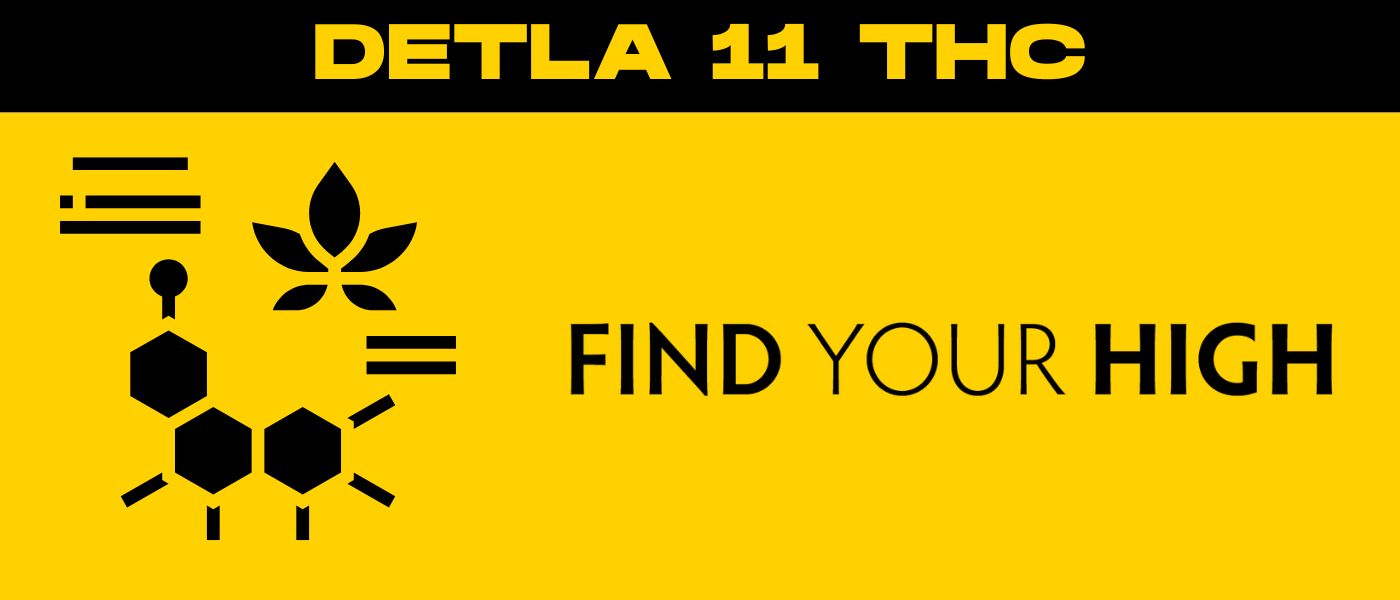Delta-11 THC appears to be the latest and most popular cannabinoid on the market, but in reality, its study dates back much further than you might expect.
Delta-11 THC is a variation of Tetrahydrocannabinol, the naturally occurring compound responsible for the mind-altering effects of cannabis. It’s just one of the many cannabinoids and THC variants that contribute to the different experiences people have when consuming weed.
In this blog post, we’ll dive into the unique properties, potential benefits, and legal status of Delta-11 THC, as well as compare it to its more famous siblings like Delta-9 and Delta-8 THC.
Curious? Stick around and we’ll answer all of your burning Delta-11 THC questions.
What is Delta-11 THC?
So here’s where things get a bit… scientific.
Delta-11 THC is one of the many isomers of THC compounds with the same molecular formula but different structural arrangements.
While all THC isomers, including Delta-9 and Delta-11, share the same parent compound, Tetrahydrocannabinol, they differ in terms of the location of their double bond. And believe it or not, this seemingly minor variation results in significant differences in how each THC isomer interacts with the body’s endocannabinoid system.
Compared to its more famous counterpart, Delta-9 THC, which is known for its strong psychoactive effects, Delta-11 THC is less studied and its effects are less well-known. Nonetheless, preliminary research suggests that it may offer unique benefits of its own.
Chemically speaking, Delta-11 THC boasts the same fundamental chemical structure as other THC compounds, consisting of 21 carbon atoms, 30 hydrogen atoms, and 2 oxygen atoms. However, it’s the unique arrangement of these atoms that gives Delta-11 THC its distinct properties.
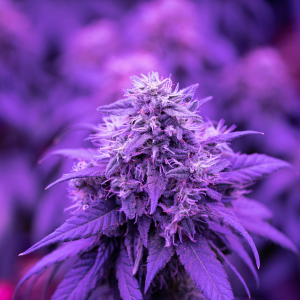
Natural Occurrence of Delta-11 THC
Delta-11 THC, like other cannabinoids, originates from the cannabis plant. However, its presence and concentration levels tend to vary greatly among different strains. Some cannabis strains might be rich in Delta-11 THC, while others might contain only trace amounts.
It’s worth noting that the concentration of Delta-11 THC can be influenced by various factors including the plant’s genetics, cultivation conditions, and harvesting time.
Its relationship with other cannabinoids is also an interesting touchpoint. Delta-11 THC, similar to its counterparts, is synthesized from cannabigerolic acid (CBGA), the precursor to all cannabinoids.
Despite sharing the same root, each naturally occurring cannabinoid, including Delta-11 THC, follows a unique biosynthetic pathway, leading to the level of diversity we see in the cannabinoid family.
The influence of Delta-11 THC on the overall effects of a particular cannabis strain, especially in connection with other cannabinoids and terpenes (the entourage effect), is an area that we think is definitely worth further research and scientific exploration.
Effects and Psychoactivity
So we’ve established that Delta-11 THC, like other THC isomers, interacts with the body’s endocannabinoid system (ECS).
However, the distinct arrangement of atoms in Delta-11 THC contributes to its unique interaction with the ECS, leading to its specific effects and levels of psychoactivity.
Comparison to Delta-9 THC Effects
Delta-9 THC is known for its potent psychoactive effects, often characterized by euphoria, altered sensory perception, and cognitive impairment. It binds strongly to CB1 receptors in the brain, which is largely responsible for its psychoactive properties.
Delta-11 THC, on the other hand, while structurally similar to Delta-9 THC, is believed to interact differently with these receptors due to the different location of its double bond. This variation may result in different psychoactive effects, possibly less intense than those of Delta-9 THC.
Research Findings on Delta-11 THC Psychoactivity
The research on Delta-11 THC’s psychoactivity is still in its early stages. Preliminary studies suggest that Delta-11 THC may have less potent psychoactive effects compared to Delta-9 THC, making it potentially more suitable for those seeking the therapeutic benefits of THC without the intense psychoactive experience.
However, comprehensive human studies are still lacking, and much of our understanding of Delta-11 THC’s psychoactive effects is currently based on anecdotal evidence and preclinical research.
With that being said, it’s extremely important to approach Delta-11 THC with an open mind and caution as we continue to learn more.
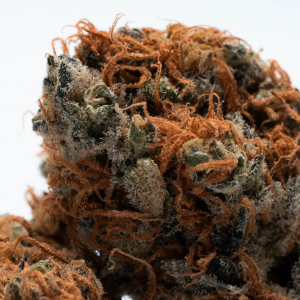
Metabolism and Conversion
When you consume Delta-11 THC, just like other cannabinoids, it goes through enzymatic processes in your body that help with its metabolism and conversion.
The enzymes in the liver, especially the cytochrome P450 complex, are super important in this process. They break down Delta-11 THC into its metabolites, which are then expelled from the body. The rate and efficiency of this conversion process can be affected by various factors like metabolism, diet, frequency of use, and even genetics.
As a result, the duration and intensity of Delta-11 THC’s effects can vary significantly from person to person. Note that metabolism rates are also key in determining the duration of its effects.
It’s believed that the metabolites of Delta-11 THC may also interact with the body’s endocannabinoid system, potentially contributing to the overall effects experienced. However, like many aspects of Delta-11 THC, more research is needed to fully understand the intricacies of its metabolism and conversion.
Medical Applications and Research
As more research comes to light, we’re finding out that Delta-11 THC might have a bunch of therapeutic benefits. Early studies suggest that, like other cannabinoids, it could have anti-inflammatory, pain-relieving, and neuroprotective properties.
Scientists are even looking into its potential role in regulating mood, which could be a game-changer for people dealing with mood disorders.
But let’s keep in mind that these are just early findings, and we’ll need more comprehensive clinical trials to fully confirm these potential benefits.
Clinical Studies on Delta-11 THC
Despite scientific evidence of the promising potential of Delta-11 THC, the clinical studies on this particular cannabinoid are few and far between.
A few preclinical trials have suggested that Delta-11 THC may exhibit less psychoactivity compared to Delta-9 THC, which could make it a more appealing option for those seeking the benefits of THC without the intense “high.”
Areas of Ongoing Research and Exploration
The field of cannabinoid research is changing rapidly, and Delta-11 THC is one area that researchers are diving into. They’re focusing on understanding how it interacts with other forms of the endocannabinoid system, its metabolic pathway, and the potential therapeutic benefits.
Plus, they’re curious about how it works with other cannabinoids and terpenes (aka the entourage effect) and how that could make it even more helpful. As we keep uncovering the mysteries of cannabinoids, Delta-11 THC is definitely one to keep an eye on.
Delta-11 THC Legal Considerations
The regulatory status of Delta-11 THC is a bit complex and varies across different regions.
For instance, in the U.S., the legal difference between Delta-11 THC and its isomer, Delta-9 THC, mainly depends on where the product comes from. If it’s derived from hemp products (with less than 0.3% Delta-9 THC), it’s considered federally legal under the 2018 Farm Bill. But if it’s made synthetically or sourced from a marijuana product, it falls under the Controlled Substances Act.
Internationally, federal law and views on Delta-11 THC legality are all over the place. Some countries have strict anti-cannabis laws that don’t differentiate between different THC variants, while others have more relaxed policies that allow minor cannabinoids.

Delta-11 THC in Different Cannabis Products
Delta-11 THC, like other cannabinoids, can be found in alternative forms of cannabis products including flower, concentrates, and edibles.
Presence in Flower, Concentrates, and Edibles
In raw cannabis flower, cannabinoids are primarily present in their acid form. Delta-11 THC, for example, is found as Delta-11 THC-Acid (THCA).
When the flower is dried and heated (a process known as decarboxylation), THCA converts to Delta-11 THC.
Concentrates and edibles also have Delta-11 THC, but the amount can differ depending on how it’s extracted and the other cannabinoid levels in the raw material.
Labeling and Consumer Awareness
It’s important for consumers to be aware of the cannabinoid content in the products they purchase. At present, labeling practices can vary widely, and not all products may explicitly list the presence or concentration of minor cannabinoids like Delta-11 THC.
However, as consumer interest in minor cannabinoids grows, we expect to see more manufacturers include this information on their product labels. After all, the presence of Delta-11 THC and other minor cannabinoids can significantly influence cannabis consumers’ product preferences.
For those seeking a less intense psychoactive experience, products with higher levels of Delta-11 THC and lower levels of Delta-9 THC may be more appealing.
However, individual responses to cannabinoids can vary greatly, and it’s always recommended to start with a small dose and gradually increase until the desired effects are achieved.
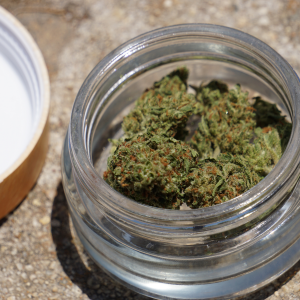
Risks and Precautions
While Delta-11 THC has plenty of potential therapeutic benefits, it’s important to consider its health considerations and possible side effects.
Like other cannabinoids, Delta-11 THC interacts with the body’s endocannabinoid system, which can lead to different responses. Some of these responses may not be desirable for certain users.
Although the side effects haven’t been extensively studied yet, they could include feeling dizzy, having a dry mouth, an increased heart rate, and changes in appetite or mood.
Additionally, because there isn’t enough research on drug testing and regulation, the quality and purity of Delta-11 THC products can vary significantly, which can pose health risks.
Conclusion
The world of cannabinoid research is always changing, with new discoveries constantly reshaping our understanding of medicinal chemistry of these complex compounds.
Delta-11 THC, while not as extensively studied, is a pretty fascinating area to explore. It has potential therapeutic benefits and might offer a less intense high, which could be exciting for the cannabis industry. We wouldn’t be too surprised if Delta-11 THC starts getting a lot of attention in the market, especially from stoners looking for a more nuanced experience.
But as we dive deeper into the world of cannabinoids, it’s important to prioritize thorough research and strict regulations. The future of cannabinoid exploration looks bright, but we need to approach it with mindfulness and knowledge to unlock the full potential of compounds like Delta-11 THC.
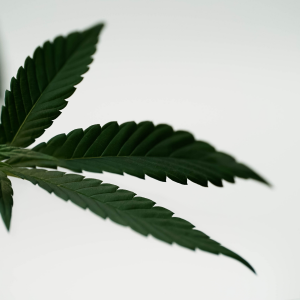
Frequently Asked Questions
1. Does Delta-11 THC get you high?
While Delta-11 THC is indeed a psychoactive compound, it’s believed to deliver a less intense “high” compared to its cousin, Delta-9 THC. This could make it a preferred choice for individuals seeking the therapeutic benefits of THC without the accompanying strong psychoactive effects.
However, each person might experience different effects and intensity due to individual variations in body chemistry.
2. Is 11-hydroxy-THC safe?
11-hydroxy-THC is a metabolite of THC produced in the liver after the consumption of edibles. Note that a THC metabolite is a byproduct created when the body processes THC. 11-hydroxy-THC and other THC metabolites are known to be more potent and longer-lasting than THC, which can result in more intense psychoactive effects.
While it is generally safe for most individuals at moderate doses, high doses or use by individuals with certain health conditions could lead to unpleasant side effects. As always with cannabis products, start with a low dose and gradually increase as needed under the guidance of a healthcare provider.
3. Is Delta-11 THC stronger than THC?
The potency of Delta-11 THC in comparison to Delta-9 THC is still a subject of ongoing research. Initial studies suggest that Delta-11 THC may exhibit less psychoactivity compared to Delta-9 THC, meaning it may not cause as intense of a “high.”
However, it’s important to remember that individual responses to cannabinoids can vary greatly, and more research is needed to fully understand the potency and effects of Delta-11 THC.
4. Which Delta THC is the strongest?
Of all the THC variants, Delta-9 THC is currently the most well-known for its potency and psychoactive effects. It’s the main psychoactive compound in cannabis and is responsible for the “high” that users experience. Note that drug tests do, in fact, detect all variants of THC.
However, keep in mind that the combination of different cannabinoids and terpenes can modulate the intensity of the high, a phenomenon known as the “entourage effect”. It’s also worth noting that 11-hydroxy-THC, the metabolite produced when THC is consumed orally, is known to be more potent than THC itself.

 Rewards
Rewards




